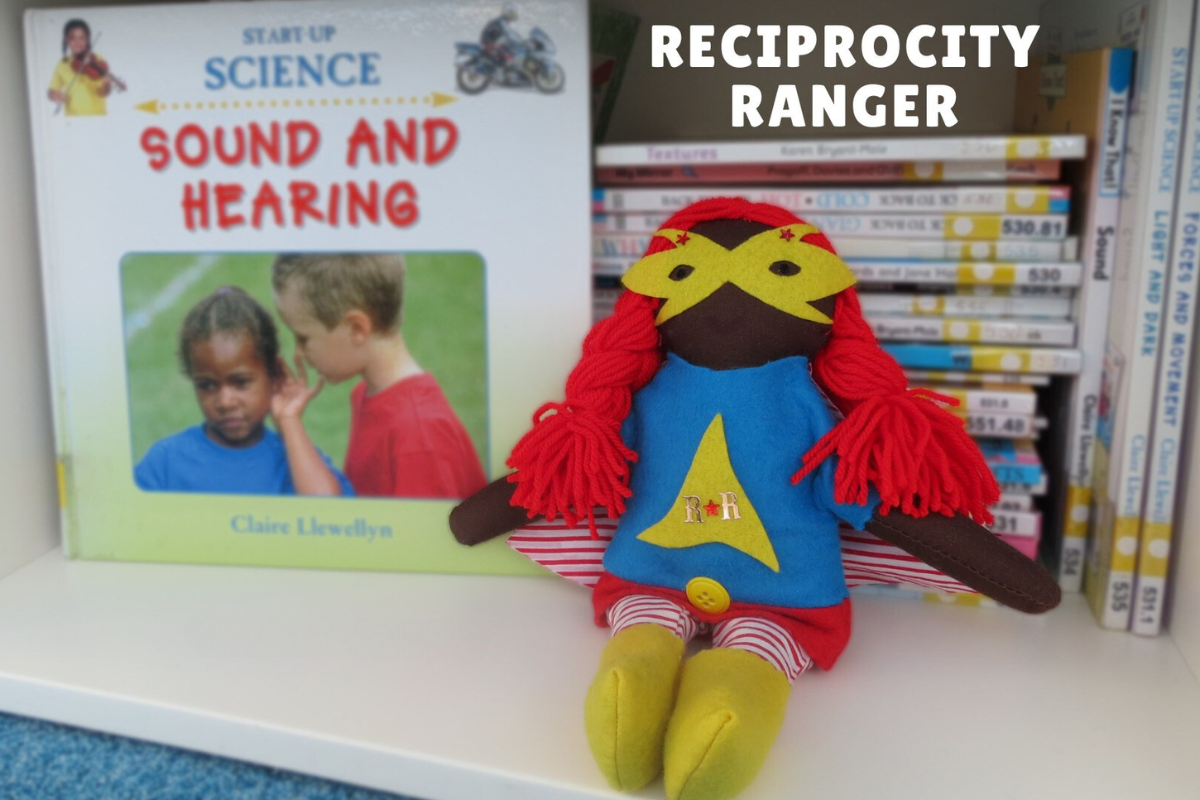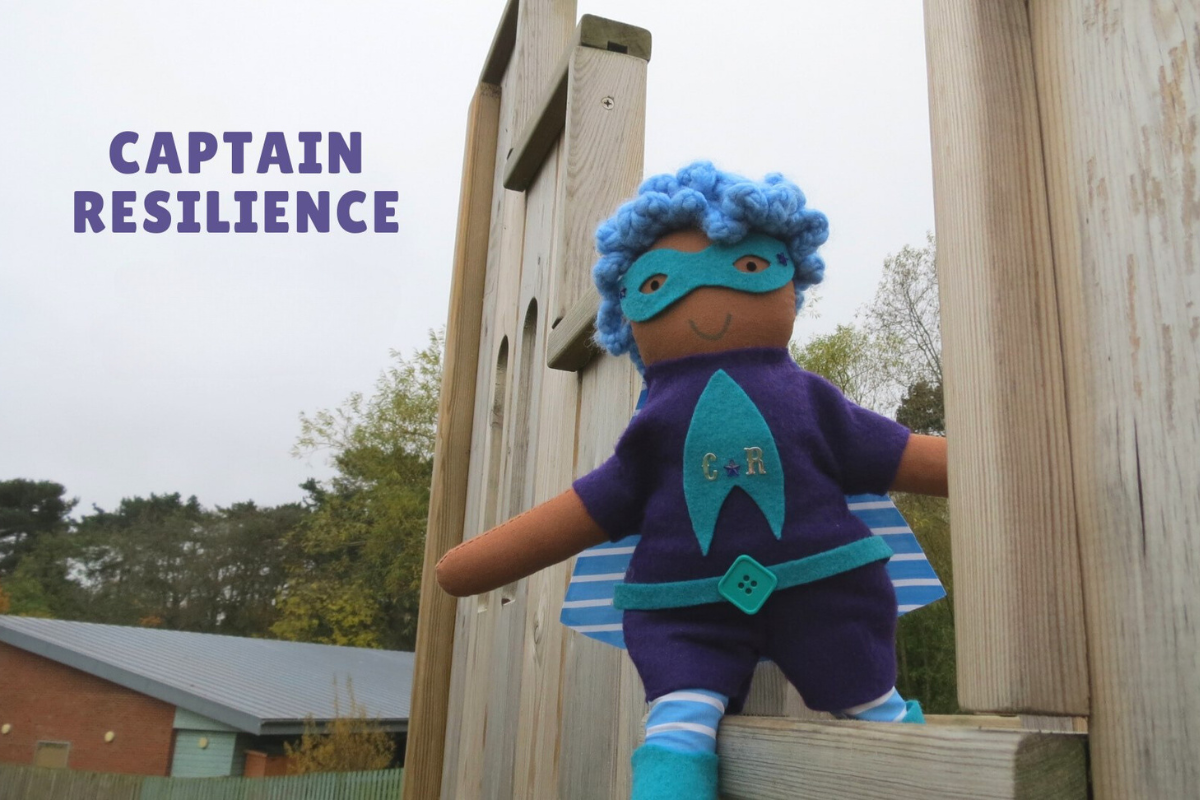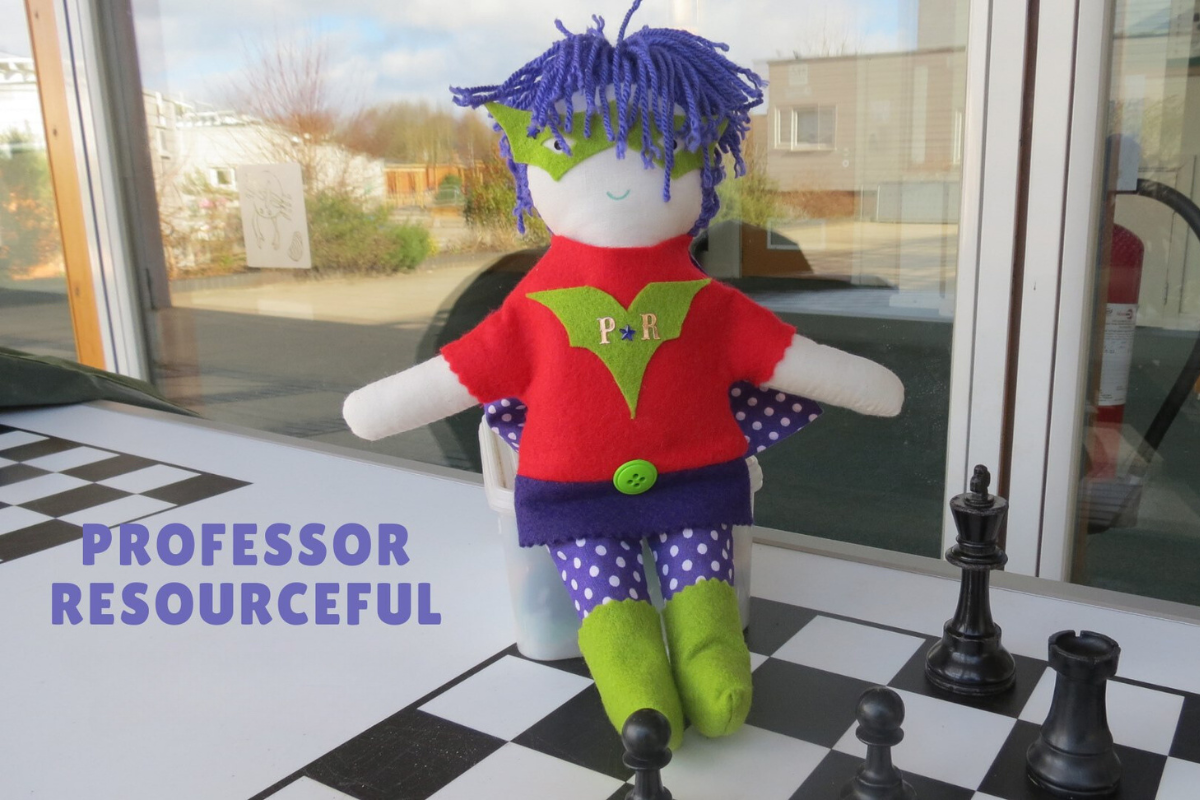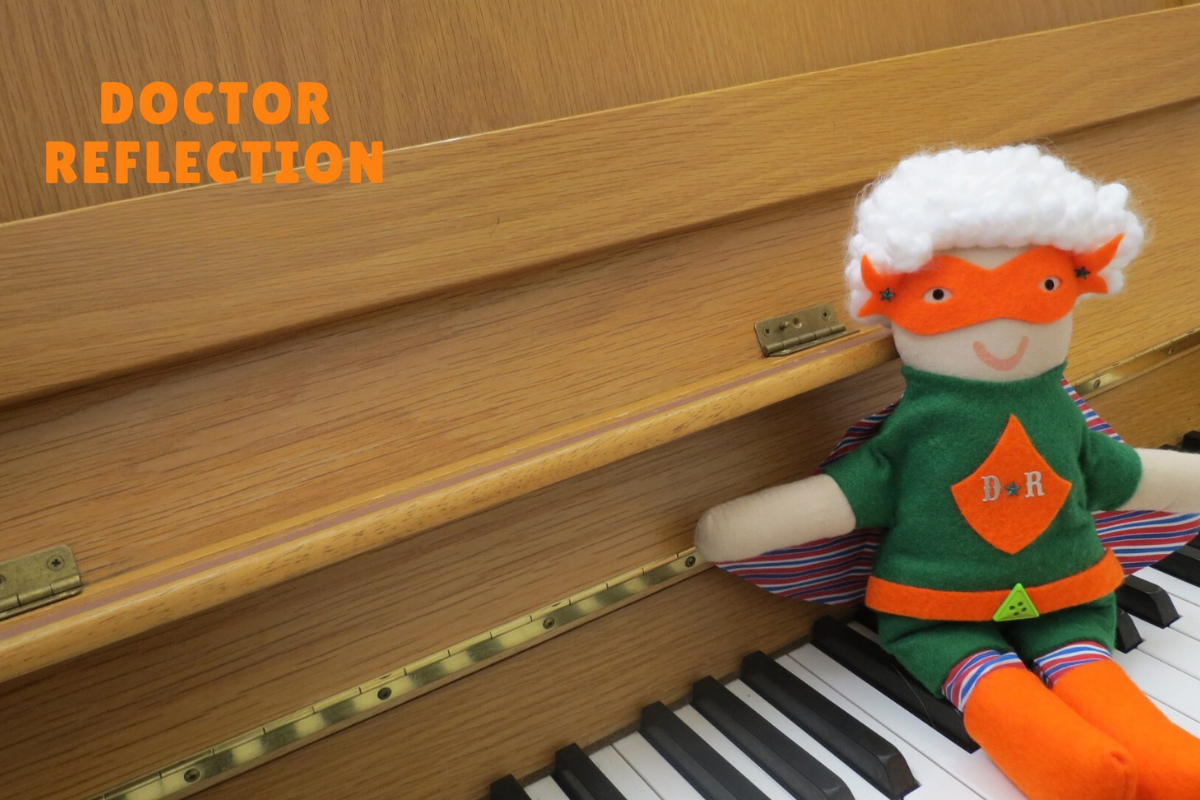In March, the government announced targets to ensure 75% of children are ‘School Ready’ by 2028. But what do the Prime Minister’s plans mean – and how are we ensuring children at Pilgrims are equipped with the skills they need to thrive in education?
Here, Miss Goodwin, our Head of Early Years, explains how at Pilgrims we already have our own enhanced set of skills, that we encourage and support our children to develop, ensuring all pupils are School Ready by the time they finish Pre School.

What does it mean to be School Ready?
The new school readiness standard, Starting Reception, is an agreed list of suggested skills and activities for parents to practise with their children ahead of the start of their Reception year.
It comes after teachers said just one in three children were ready to start Reception, despite a survey finding nine in 10 parents believing their child was.
The standard sets out key areas for parents to focus on, helping their children develop both the abilities and confidence to thrive as they start their school journey.
How Pilgrims supports Early Years children to be School Ready
School Readiness is woven into our skill-based curriculum and delivered through the activities the children are already engaged in. By developing skills and learning behaviours, we enable our children to become more independent and ready for the next stage in their educational journey.
This starts from when they join Little Pilgrims in the baby room from 3 months old, right through to Pre School before they make their next steps into Reception.
Skills incorporated into our curriculum to ensure the children are School Ready include:
- Listening to instructions and following them, including remembering two and three-part instructions.
- Sharing and taking turns through play, allowing others to join in with them.
- Removing shoes and socks for PE and undressing and dressing before and after swimming lessons, with help from staff where needed.
- Using the toilet independently with staff being close by to assist if required.
- Transitioning from one activity, environment or staff member to another with ease and minimal intervention from staff.
- Allowing children to develop independence by collecting their own lunch and expressing their choices and preferences while using good manners.
Depending on development levels and requirements, children have a weekly focus to ensure all areas are covered. In Pre School, for example, this could be using manners, learning what manners are or how and when to use them – such as when to say please and thank you. We reinforce behaviours through group time discussions and positive reinforcement.
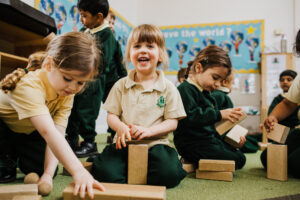
How Pilgrims supports parents to help encourage their children to be School Ready
All of our parents with children in Pre School have access to our School Ready indicators so they also know what we are working towards. We keep parents regularly informed about their child’s development throughout the week and offer suggestions for home activities to support areas where children might need extra encouragement. We also share the specific actions we take in school to reinforce these skills and encourage parents to mirror our actions at home, creating a consistent and supportive environment for their child’s growth.
In addition, we use our own School Ready indicators during parent evenings to provide a clear and personal update on each child’s development. Where additional support is needed, we will introduce individualised interventions to ensure every child is on track to be School Ready. Parents also receive a summary of their progress at the end of each term.
How do School Ready skills in Early Years help the pupils’ learning?
Preparing our Pre School children to be School Ready lays a foundation for success as they transition into Main School. By the time they reach Reception, they are already equipped with essential skills such as listening, understanding and following instructions, enabling them to learn quickly and confidently.
Through the foundations built in Little Pilgrims and Pre School, our children are able to communicate clearly and ask questions which enhances their learning.
At Pilgrims, we offer a more structured Pre School curriculum than many other settings, using specialist teaching to ensure our children are better prepared for going into Reception. In Pre School, we provide sessions in Literacy (including phonics and handwriting), Maths, IT, PE, Music, Forest School and Swimming – areas often not covered in the same depth elsewhere. Our Pre School children thrive on the stimulation offered through well-planned, fun and interactive lessons, balancing more structured lessons with periods of meaningful and child-initiated play to reinforce their skills.
Being School Ready not only supports a smooth transition into Reception, but also enhances children’s ability to access learning and allows them to embrace new opportunities and experiences as they continue their educational journey.
For further information about our school readiness policy and indicators, please call 01234 329555 or email admissions@pilgrims-school.org.uk.
This year marks 25 years of Pilgrims Pre-Preparatory School. Throughout 2025 we’ll be marking this milestone with lots of celebrations, including a reunion party.
We’d love to hear from former pupils, staff and other associated individuals, as we build our alumni community. Share your memories and let us know what you are doing now by filling out the form below.
Did you start your educational journey at Pilgrims? And did you move on in the summer of 2013 or before? Whether you were one of the very first pupils or part of the class of 2013, we’d love to welcome you back for our first ever reunion event at Pilgrims, from 6pm – 9pm on Tuesday 24th June 2025.
Join this special evening celebration catching up with old friends, reconnecting with former teachers, taking a nostalgic tour of the school, and even enjoy some of your favourite school desserts!
Can’t make it? We’d still love to hear from you. Please do fill out the form below and join our alumni community
25 years of Pilgrims
At Pilgrims, we know that music can enhance children’s learning, development and growth, as well as offering other benefits that extend beyond the classroom such as improving cultural awareness.
Here Mrs Knight, Head of Music, explains how we work towards instilling a lifelong love of music throughout the school with our diverse range of musical opportunities available to the children.

Opportunities within our school curriculum
At Pilgrims we have a dedicated music space filled with a wide variety of tuned and untuned percussion instruments. Our large music room gives the children space to express themselves during their music lessons, while our other two rooms, one next door which is sound-proofed, and the separate music pod provide pupils with the opportunity to focus on their individual learning during 1:1 sessions.
We know that taking part in music can help the children to improve their teamwork, build their sense of community and be a source of enjoyment.
We believe it is important for music to be a part of the school curriculum as not only can it be an emotional release for children, but all children can join in with something. Whether that be playing, singing, clapping or moving, pupils of any age or musical ability can participate.
Relating to the core curriculum, participating in musical activities can help children with learning to read or phrase sentences and gives them an alternative, enjoyable way to enhance these skills in school.
Music is incorporated into our curriculum from Little Pilgrims, where children may only be three months old, all the way through to the Year 2 Pupils.
Mrs Bagnall visits the Pre School children once a week to teach them music, while Mrs Knight teaches Reception to Year two children, all having one hour of music lessons per week.
During these sessions the children are taught to read rhythmic notation so they can begin to understand the length of a note, as well as incorporating all the other important elements of music including pitch, dynamics, tempo, timbre and texture.
Year 2 pupils are introduced to musical notation which communicates the pitch of a note as well as the duration. They learn this using tuned percussion instruments such as glockenspiels.
Singing assembly provides a whole school opportunity to sing together once a week, covering songs all about our school values – curiosity, kindness and respect.

Musician of the Month
Each month we have a “Musician of the Month” which could be a famous musician known for any genre of music, from classical to pop and rock and originating from any country around the world. They could also be a singer, a band or play an instrument.
We tie in the musicians selected with school topics and the seasons of the year. For example, while Year 1’s topic for spring term is Africa, an African musician is selected and in the lead up to Easter, a musician who has Easter themed music will be selected.
We play songs from the “Musician of the Month” while the Main School children are on their way into and out of our Singing Assemblies which are held each Friday.
In addition, external musicians are invited into the school to showcase different and more unusual instruments and genres of music. We have previously had a beatboxer visit the school and more recently, a bassoon quartet.
We also invite pupils from the other Harpur Trust schools to perform for the Pilgrims children. These pupils also participate in a showcase each June where they talk with the children about the instruments they play and the different sounds they can make. The pupils visiting from the other Harpur Trust schools are often pupils who attended Pilgrims when they were younger, so it is wonderful to see their musical journey continue and progress through school.
Inviting external musicians gives the children the opportunity to see and learn about instruments and musical techniques that they might not otherwise be introduced to. These visits expand their knowledge and shows the diverse range of opportunities available to the children through music.

Extra-curricular opportunities
Children in Years 1 and 2 have the opportunity to take part in 1:1 lessons to learn specific musical instruments or to sing. Instrument options we offer at Pilgrims include violin, cello, viola, piano, guitar, ukulele and drums.
These lessons are taught by external staff that come in to assist Pilgrims and increase the range of musical opportunities we can offer. Our musical teaching staff includes Mrs Bagnall (string instruments, piano and singing), Mrs Gibson (cello and piano), Mrs Leigh (cello and piano), Mrs Lesley Green (singing), Mrs James (violin and piano), Mr Milligan (guitar and ukulele) and Mr Fisher (drums).
Mrs Bagnall and Mrs Gibson also teach a string ensemble which can include from three to 12 children participating. Our orchestra currently has 14 children while our choir has a group of 38 children singing together, led by Mrs Knight.
Our pupils have the opportunity to participate in local community events such as the Bedfordshire Festival and Proms in the Park, as well as performing for our local community at Christmas, singing at the park cafe and spreading joy to residents in local care homes. These opportunities allow the children to showcase their talents and build confidence in performing.
All of our musical teaching at Pilgrims is underpinned with rhythm and listening skills and can involve singing, playing instruments, movement and even composing, but always at the heart of it is enjoyment.
If you or someone you know has a background in music or plays an unusual instrument and would like to visit the children to inspire their love of music, please email Mrs Knight at: a.knight@pilgrims-school.org.uk with further information about what you can teach our children.

At Pilgrims we encourage all pupils to adopt a Growth Mindset to improve their learning.
The term “Growth Mindset” was coined by American psychologist Carol Dweck in her 2006 book Mindset: The New Psychology of Success. Dweck’s studies show that students with a growth mindset consistently outperform students with a fixed mindset.
A simple definition of a Growth Mindset is the belief that knowledge and skills can be improved with effort and persistence. Those with a Growth Mindset embrace challenges, stay resilient, learn from constructive criticism and are inspired by other people’s success.
Those with a Fixed Mindset, however, will often avoid taking risks and view mistakes as failures rather than opportunities.
Here our Deputy Headteacher, Mrs Quince, explains the different strategies we use across the school to support our children to develop skills that allow them to flourish.
A healthy Growth Mindset starts at a young age, which is why we look to instil all the right characteristics at the early stages of the children’s learning journey. Strategies are introduced, developed and built upon from Little Pilgrims to Year 2.
At Pilgrims we celebrate mistakes and view them as an opportunity to learn. The children then learn that they do not need to be afraid of making mistakes, but to embrace them and reflect on what they could do differently next time.
When facing a challenge, instead of thinking “this is too hard” or “I’ll never be that smart”, we encourage children to think “this may take some time” and “I will learn how to do this”.
We also encourage positive thoughts through the power of “yet”. The concept is that it’s not that they can’t do something, but that they can’t quite do it yet. I’m not good at this… yet. By adding “yet” to the end of a sentence, pupils believe that there is the opportunity to learn and improve knowledge and skills, promoting resilience and determination to succeed.
Our staff have been trained to praise the children’s learning process rather than just the outcome or achievement. Praising their effort, perseverance, motivation and strategies helps us show the children we value their learning journey and not just the end result.
We use our Learning Power Superhero Ragdolls inspired by Professor Guy Claxton’s Building Learning Powers; Doctor Reflection, Reciprocity Ranger, Professor Resourceful and Captain Resilience, to support a Growth Mindset throughout the children’s learning journey at Pilgrims. For example, Captain Resilience’s skills and habits are perseverance, absorption, noticing and managing distractions.
Developing a Growth Mindset from an early age not only helps the children with learning at school but will also enable the children to embrace new opportunities and experiences later in life.
At Pilgrims Pre-Prep, our children flourish in an environment that champions the core British values of inclusivity, community, liberty, respect and tolerance – no matter a person’s background or beliefs.
One way we actively teach and promote these values is through incorporating various religious festivals into our curriculum. By exploring these religious and cultural celebrations, we help our children understand and appreciate the diverse world around them.
October will see the children learn about several important religious festivals celebrated by different communities here in the UK and around the world. Our Religious Education Co-ordinator, Mrs Woodworth, takes a look at what they have already learnt, and what is coming up for the rest of the month.
Rosh Hashanah Festival
At the beginning of the month, we taught the children about Rosh Hashanah, the Jewish New Year, which means ‘head of the year’.
This is a time for self-reflection, where Jewish people seek forgiveness for any wrongdoings over the past year. It’s a solemn holiday, unlike the lively New Year’s Eve celebrations in other cultures, with many Jewish people spending lots of the holiday in prayer at a synagogue.
Rosh Hashanah ends on Yom Kippur, also called the Day of Atonement. Jewish people may be forgiven for previous mistakes and misdeeds on this day.
After the religious services, many Jewish families come together for festive meals, often featuring symbolic foods such as apples dipped in honey, representing the hope for a sweet new year, and challah bread, signifying the cycle of the year.
Through this festival, we aim to teach our children about the values of reflection and forgiveness.
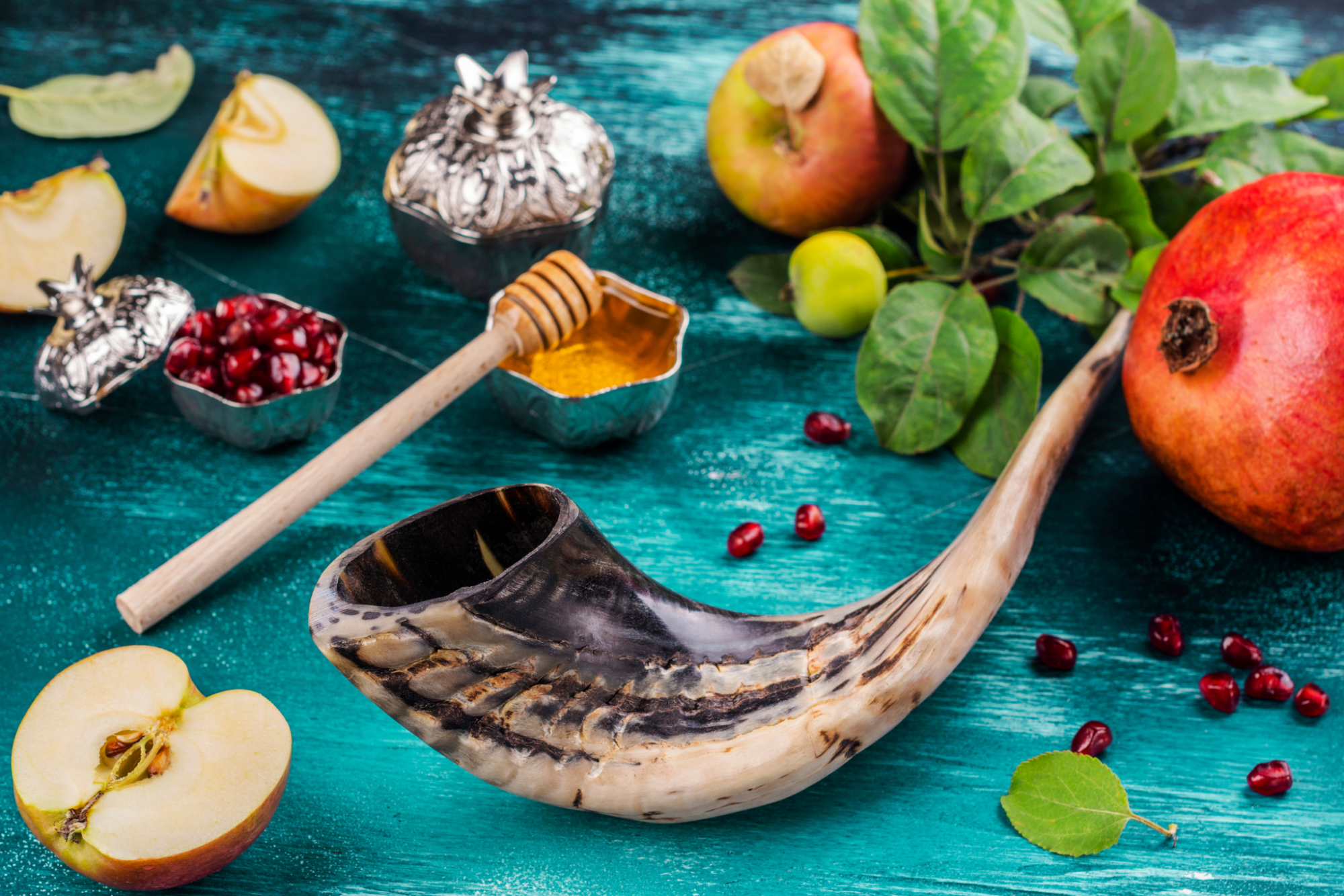
Gandhi Jayanti
This month, we also introduced the children to the life and legacy of Mahatma Gandhi.
Born on 2nd October 1869, Gandhi is remembered for his role in leading non-violent protests against British rule in India.
Gandhi was a leader of India’s independence movement and an advocate for non-violent resistance. His teachings on peace and tolerance are still influential worldwide.
His birthday is celebrated as Gandhi Jayanti, a national holiday in India and the International Day of Non-Violence worldwide.
Through discussing Gandhi’s legacy, we introduced the children to concepts of peaceful protest, respect for others and equality for all.
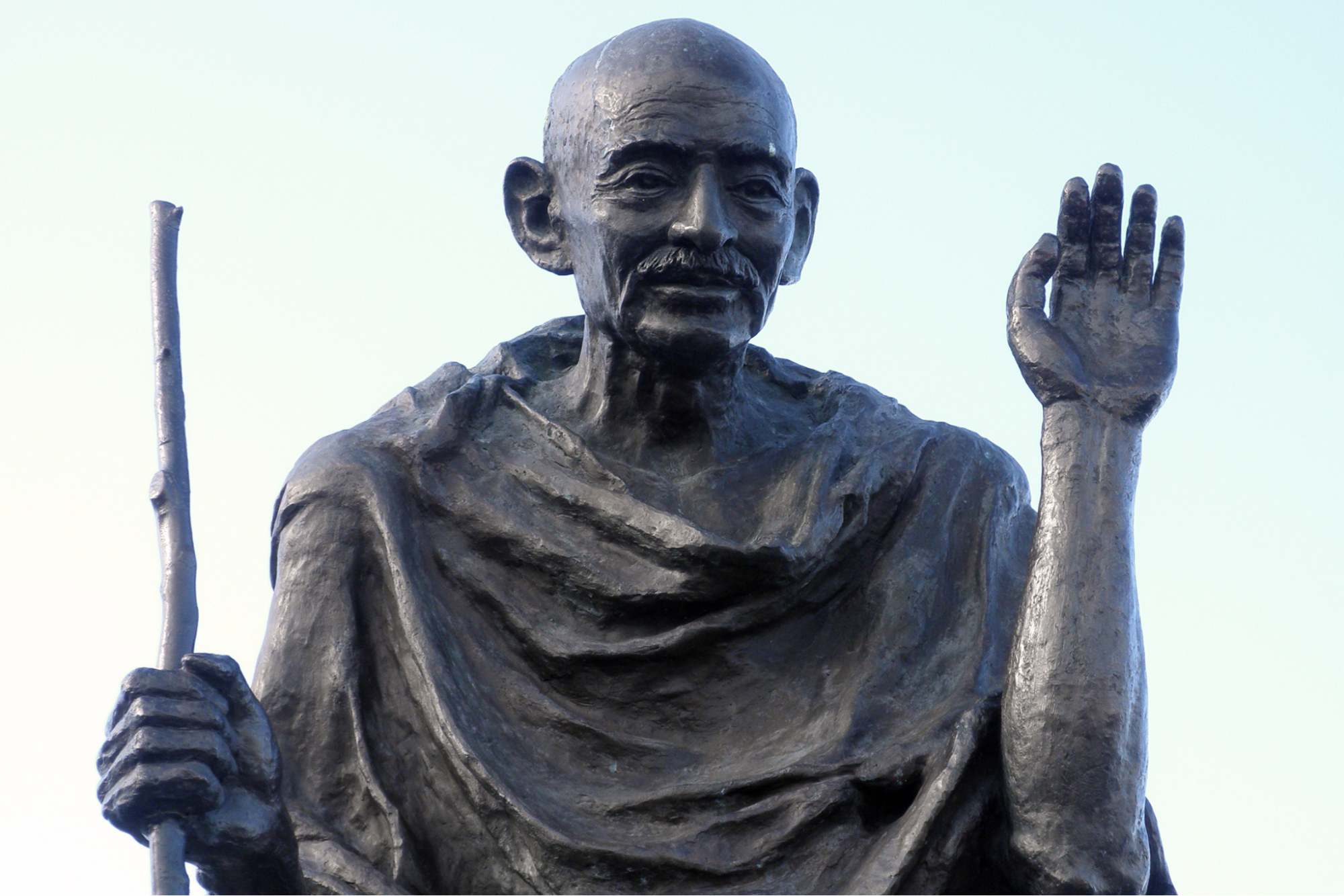
Harvest Festival
In October, we also celebrated Harvest Festival, a time of gratitude for the abundance of good food we have and a reminder of the importance of helping those who have less.
This Christian celebration is a British tradition which dates back centuries and originally gave thanks for successful crop harvests.
At Pilgrims, we teach the children to be grateful not only for the food on their plates but also for the farmers who grow it, the workers who produce it, and the community that helps make it possible.
Thanks to your generosity, we collected lots of produce during our harvest festival, from fresh and tinned foods to flowers and baked goods.
We then sold the produce to parents and raised £230 for this year’s school charity, Making Me
Any leftover items were given to Bedford Food Bank, which provides three days’ worth of nutritionally balanced emergency food and support to local people referred to them in crisis.
Often, we don’t take enough time to say thank you and yet these two little words can mean so much.
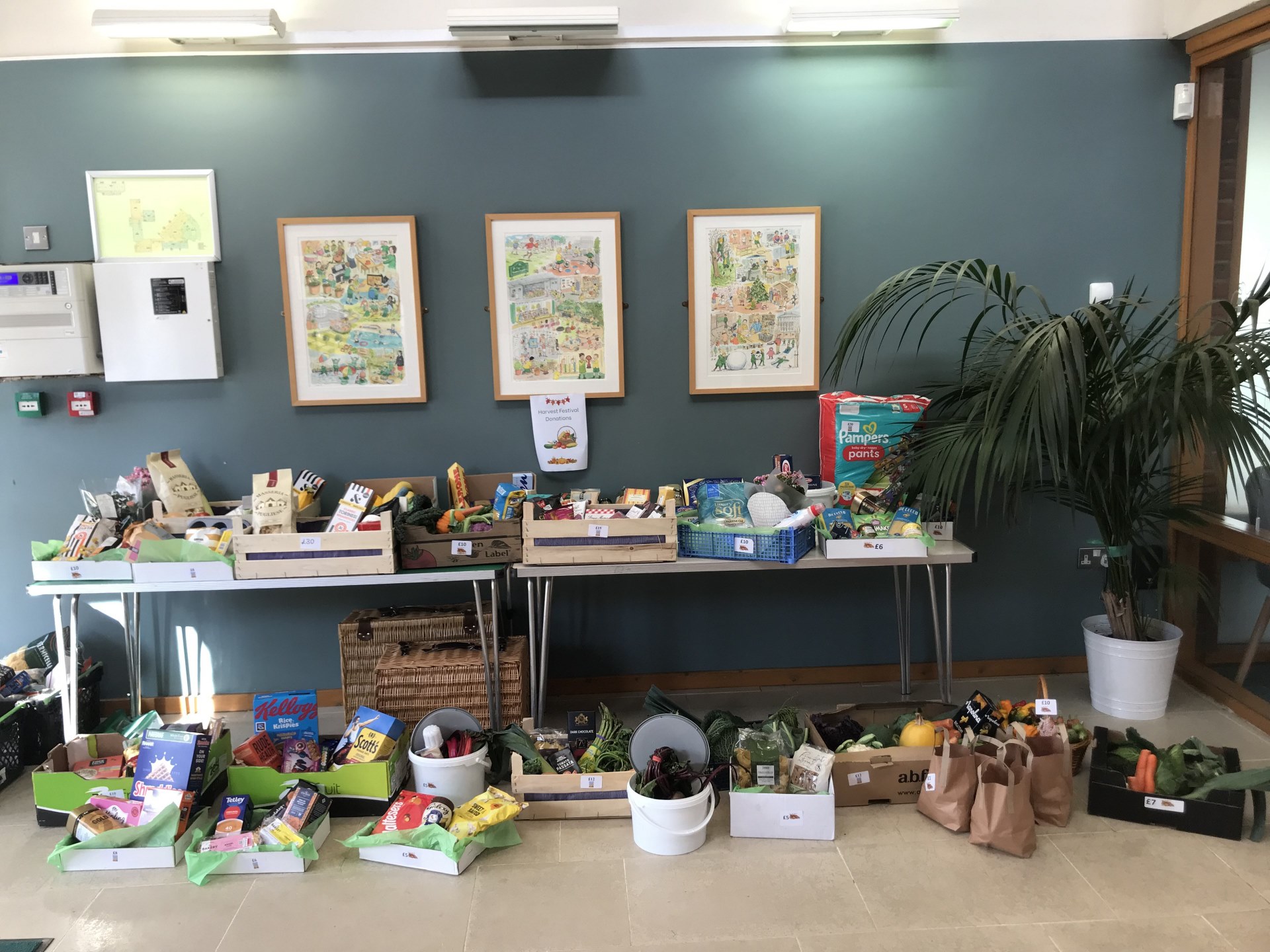
Diwali
Hindus
As October comes to an end, we will be preparing for Diwali, the Hindu festival of lights, which will take place on Friday, 1st November this year.
Diwali is the most important holiday in India and symbolises the spiritual victory of light over darkness, good over evil, and knowledge over ignorance. It’s celebrated by lighting small oil lamps called diyas to mark the return of Ram, Sita and Lakshman to their kingdom, after defeating the evil demon king Ravan, and honouring Lakshmi, the goddess of wealth.
Other ways that Hindus celebrate the festival include spring-cleaning the home, wearing new clothes, exchanging gifts, preparing festive meals, decorating buildings with fancy lights and huge fireworks displays.

Sikhs
Diwali is also celebrated by Sikhs. For Sikhs, Diwali is particularly important because it celebrates the release from prison of the sixth guru, Guru Hargobind Sahib, and 52 other princes with him, in 1619. When Guru Hargobind Sahib Ji and the prisoners got back to their home town of Amritsar, it was the day of Diwali. Sikhs called the day Bandi Chhor Divas, which means ‘Prisoner Release Day’.
Today, many Sikhs celebrate Bandi Chhor Divas by giving and receiving gifts, lighting diyas and spending time with family and friends.
By teaching about these festivals, we help our children at Pilgrims Pre-Prep understand and appreciate the diverse cultures, faiths and traditions that make up our world.
Through activities, stories and discussions, we foster a sense of respect and tolerance, encouraging the children to embrace the differences that enrich our community.
At Pilgrims, fostering positive thinking is central to our ethos.
We aim to nurture an environment where our children are encouraged to develop a growth mindset, seeing challenges as opportunities for learning and personal development.
Here, to mark Positive Thinking Day, our Headteacher Mrs Webster highlights how Pilgrims encourages a positive thinking mindset, not just on one day, but all year round.
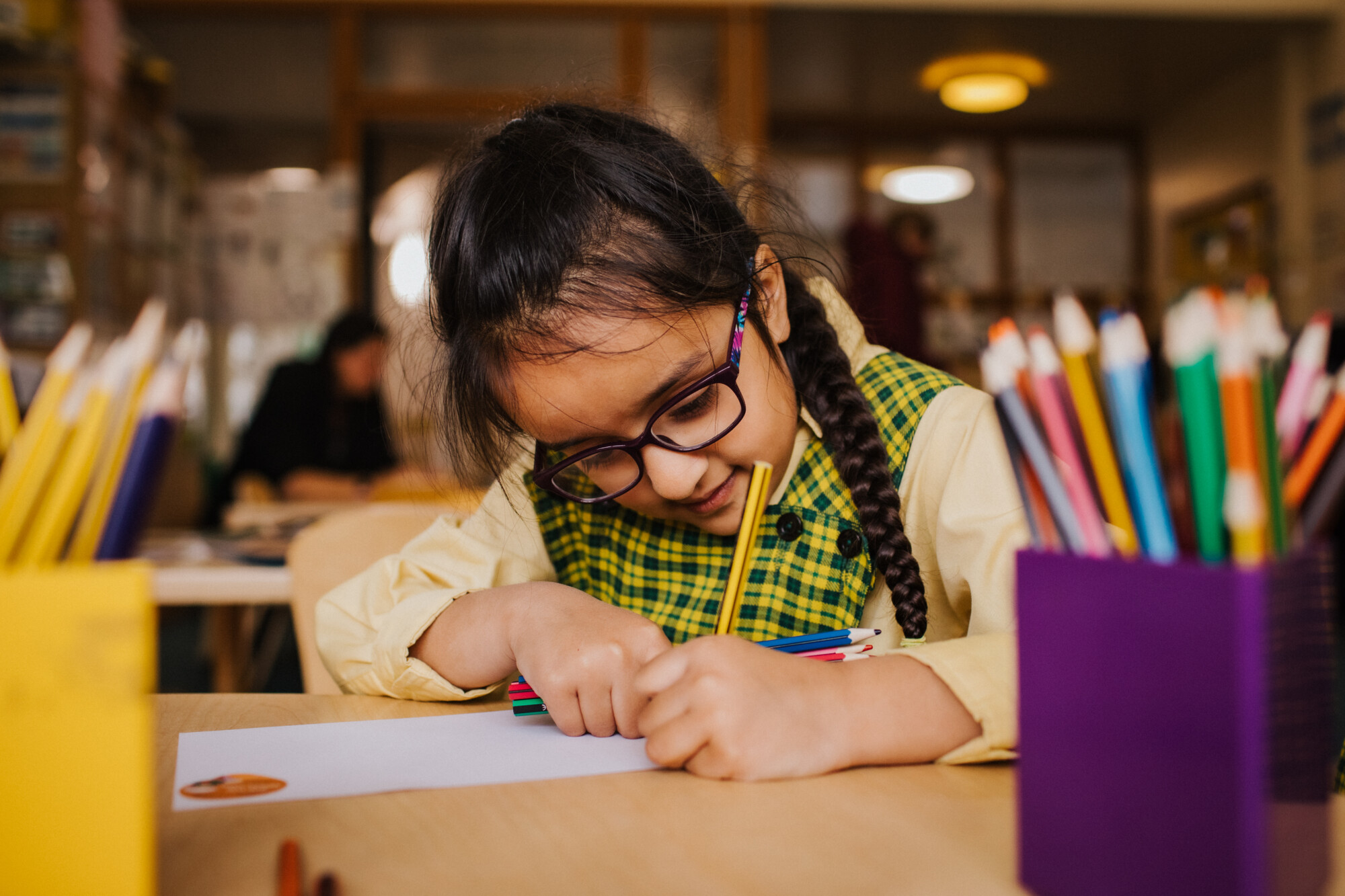
We love to see the benefits of positive thinking blossom in our children. By providing a nurturing environment which encourages a positive, can-do attitude, we help them develop the resilience and confidence they need to overcome any challenges they face.
Reinforcing the importance of positive thinking highly benefits our children as they progress through their educational journey.
Growth mindset
At Pilgrims, we promote a supportive environment where mistakes are viewed as stepping stones to success, helping children build a growth mindset and maintain a positive outlook.
A growth mindset is a belief that abilities and success can be attained through dedication and hard work.
That’s why we encourage the children to embrace challenges as opportunities for growth and learning, rather than obstacles.
We teach them that persistence and hard work can lead to improvement, with the aim to build their resilience and confidence in their abilities.
Teach problem-solving skills
We encourage our children to develop their problem-solving skills to navigate challenges effectively.
For example, we encourage them to brainstorm solutions, think creatively and consider different perspectives.
By fostering resilience and teaching them how to approach problems from different points of view, we help empower them to overcome any obstacles that come their way.
Celebrate successes and progress
Positive reinforcement is crucial to our educational approach. No matter how small, we recognise all our children’s efforts and acknowledge their achievements.
By praising effort and progress, rather than just outcomes, our children learn the value of perseverance and self-belief.
This aligns with the essence of Positive Thinking Day, where individuals are encouraged to embrace optimism and a can-do attitude in all aspects of life.
And remember … if you think you can’t do something, it just means that you “can’t do it yet!”
If you would like to learn more about how we designed our curriculum to encourage positive thinking, click here.
To foster well-rounded development, we offer a diverse range of extra-curricular activities that support children’s learning, growth and wellbeing. From swimming to football and yoga, to music and gymnastics, we offer an array of activities here at Pilgrims.
Our Headteacher, Jo Webster, explains how extra-curricular activities offer a wealth of benefits that extend far beyond the classroom, impacting the children’s social, emotional and cognitive growth. They provide a safe, supportive and nurturing environment for children to try something new and challenge themselves that may be outside of their comfort zone.
Enhancing social skills
One of the primary benefits of extra-curricular activities is the opportunity they provide for children to develop their social skills.
Whether it’s collaborating in arts and crafts, playing on a football team or participating in a LAMDA drama club, these activities teach children how to interact with their peers, work as part of a team and communicate effectively.
These experiences also foster a sense of belonging and community, which is essential for building confidence and self-esteem.
Encouraging physical and mental wellbeing
Participation in physical activities, such as sports or dance, is vital for a child’s physical and mental health.
Regular exercise helps children improve their cardiovascular health and build strong bones and muscles. Additionally, physical activity has been shown to reduce stress, improve mood and enhance cognitive function, contributing to better academic performance.
Extra-curricular activities also support mental wellbeing by providing a creative outlet for self-expression. Whether it’s painting, dancing or playing a musical instrument, these activities allow children to explore their passions and interests.
Providing a sense of achievement, purpose and skills for life
Extracurricular activities offer children a sense of achievement that is separate from their academic success.
Whether it’s scoring a goal or mastering a difficult piece of music, these accomplishments give children a sense of pride and purpose.
This positive reinforcement encourages children to set and pursue goals, not only within their chosen activities but also in other areas of their lives.
The skills they develop are transferable and beneficial across all aspects of their education and personal development. These include discipline in attendance and practice, resilience to bounce back from failure and perseverance to continue through the ebbs and flows of their learning journey.
Joining extra-curricular activities at Pilgrims
At Pilgrims we encourage all children to take advantage of the opportunities available, explore new skills, interest and passions, while discovering the many benefits that extra-curricular activities have to offer.
We strive to ensure that every child has the opportunity to participate in their chosen extra-curricular activities.
Nurturing talent
We understand how a keen interest in an activity can go hand in hand with development, so we inspire our children to build a lifelong love of the activities they enjoy. Our advice to parents would be to sit with their children and discuss the activities on offer to find out what each child might like and want to try. Sometimes this involves trying more than one activity to find out what they really enjoy.
If staff at Pilgrims notice a child’s keen interest or natural ability towards an activity, we will mention this to parents, which can form the basis for a discussion. Alternatively, parents are welcome to approach staff to understand what might be suitable for their child.
Due to the popularity of some clubs and the limited number of places available, we encourage our parents to book early to avoid disappointment.
For information on availability and bookings, please contact Mrs. Cole in the main office, either in person or via email at s.cole@pilgrims-school.org.uk.
As the academic year draws to a close, we reflect on a year filled with musical achievements at Pilgrims.
Mrs Knight, Head of Music, and Mrs Bagnall, Visiting Music Teacher, share their highlights and proudest accomplishments from this incredible academic year.
Mrs Knight’s highlights and achievements
One of my standout achievements has been the remarkable growth of the string ensemble. Through dedicated recruitment efforts, the ensemble now boasts a record number of talented students.
I am particularly proud of the students who took their ABRSM (Associated Board of the Royal Schools of Music) examinations in violin, singing and piano. Their hard work paid off with excellent results.
I am also proud of the number of entrants we had for the Bedford Festival this year. We had individual pianists, singers, violinists, a choir, drama group, string ensemble and school orchestra.
This year, we have continued to enjoy our visits to local retirement homes with the choir children from Year 1 and 2. We always have a great time singing and playing games with the residents.
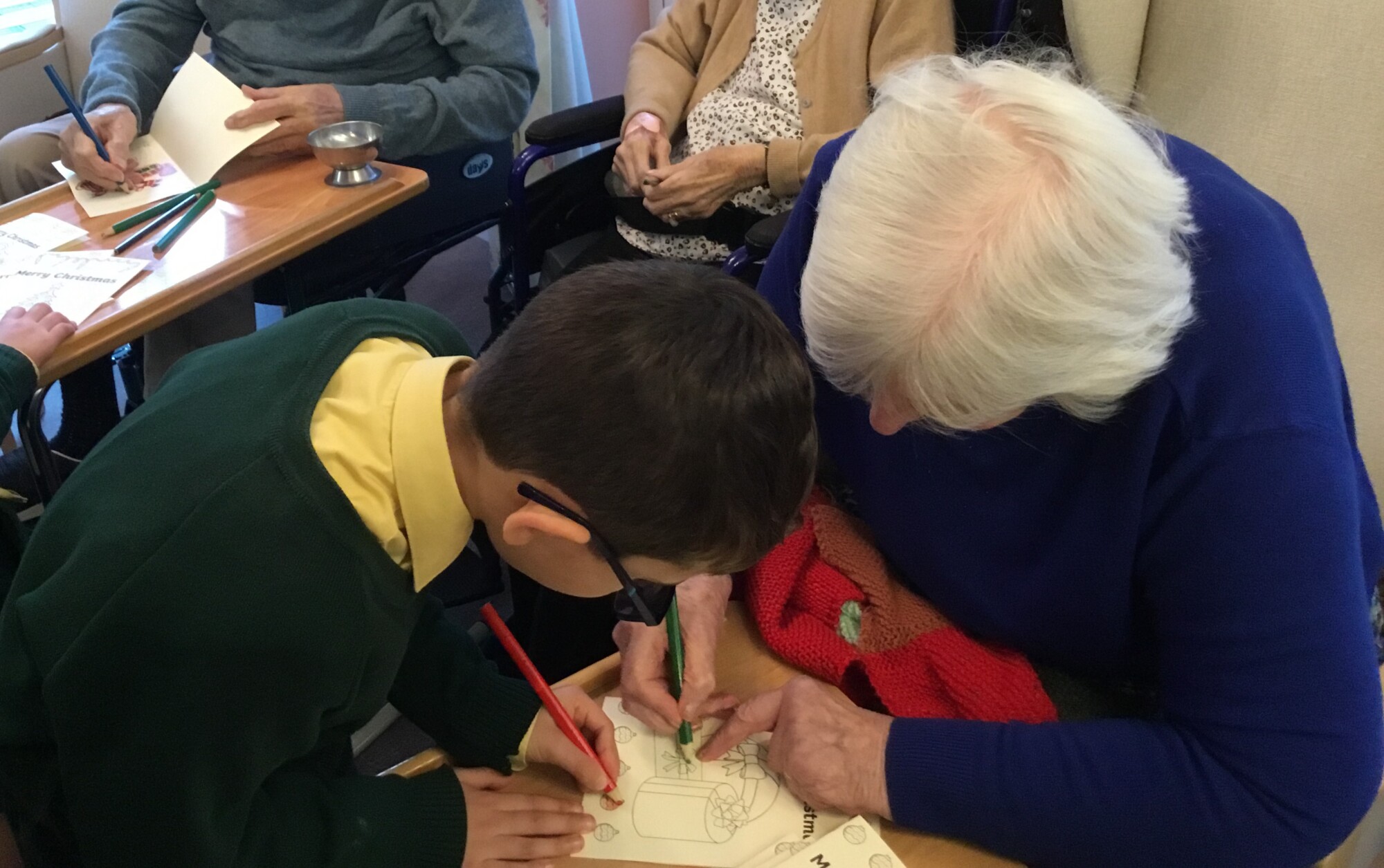
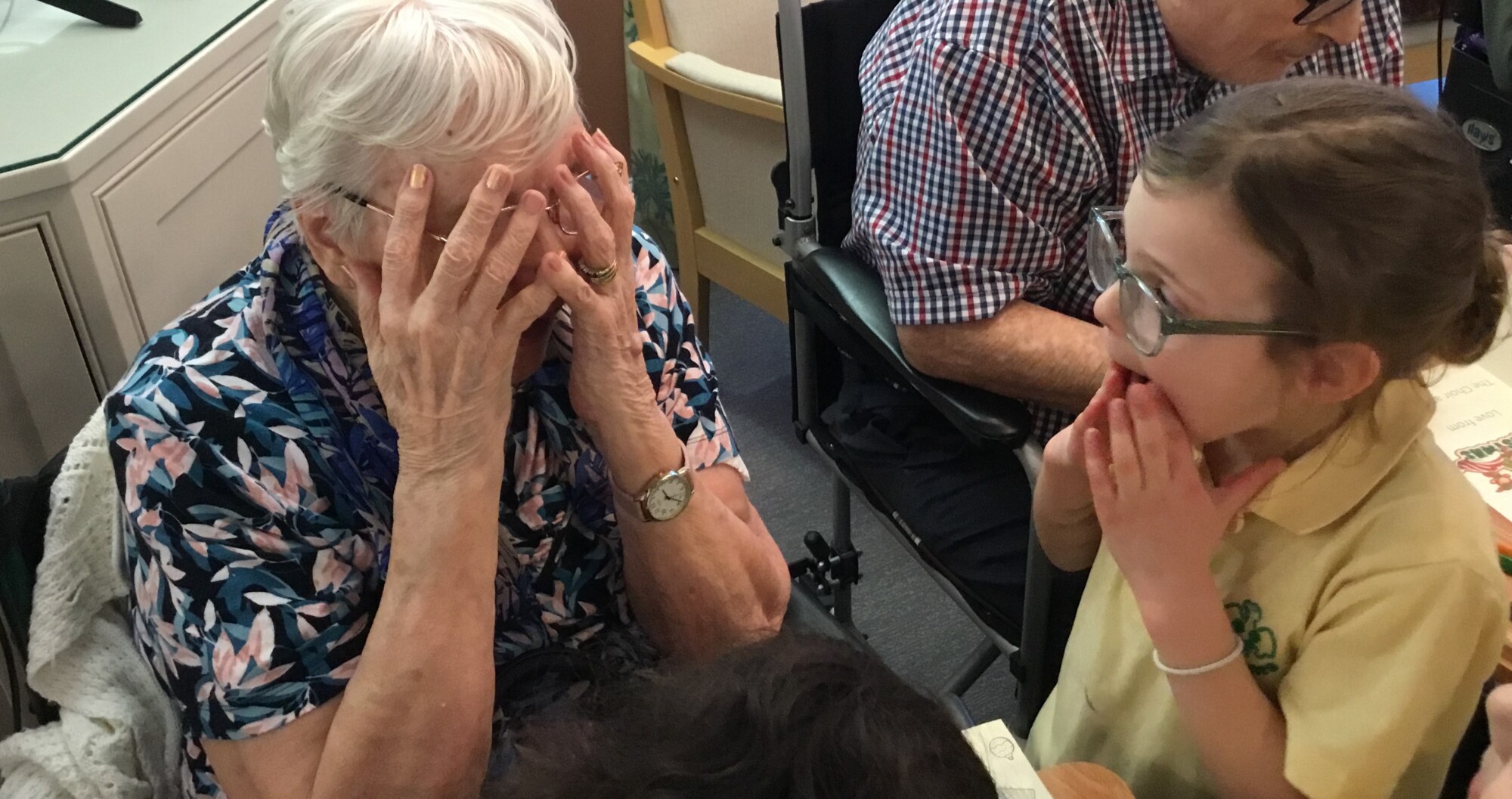
We also had a brilliant bassoon quartet visit this year. The visit was great for the children to hear more unusual instruments.
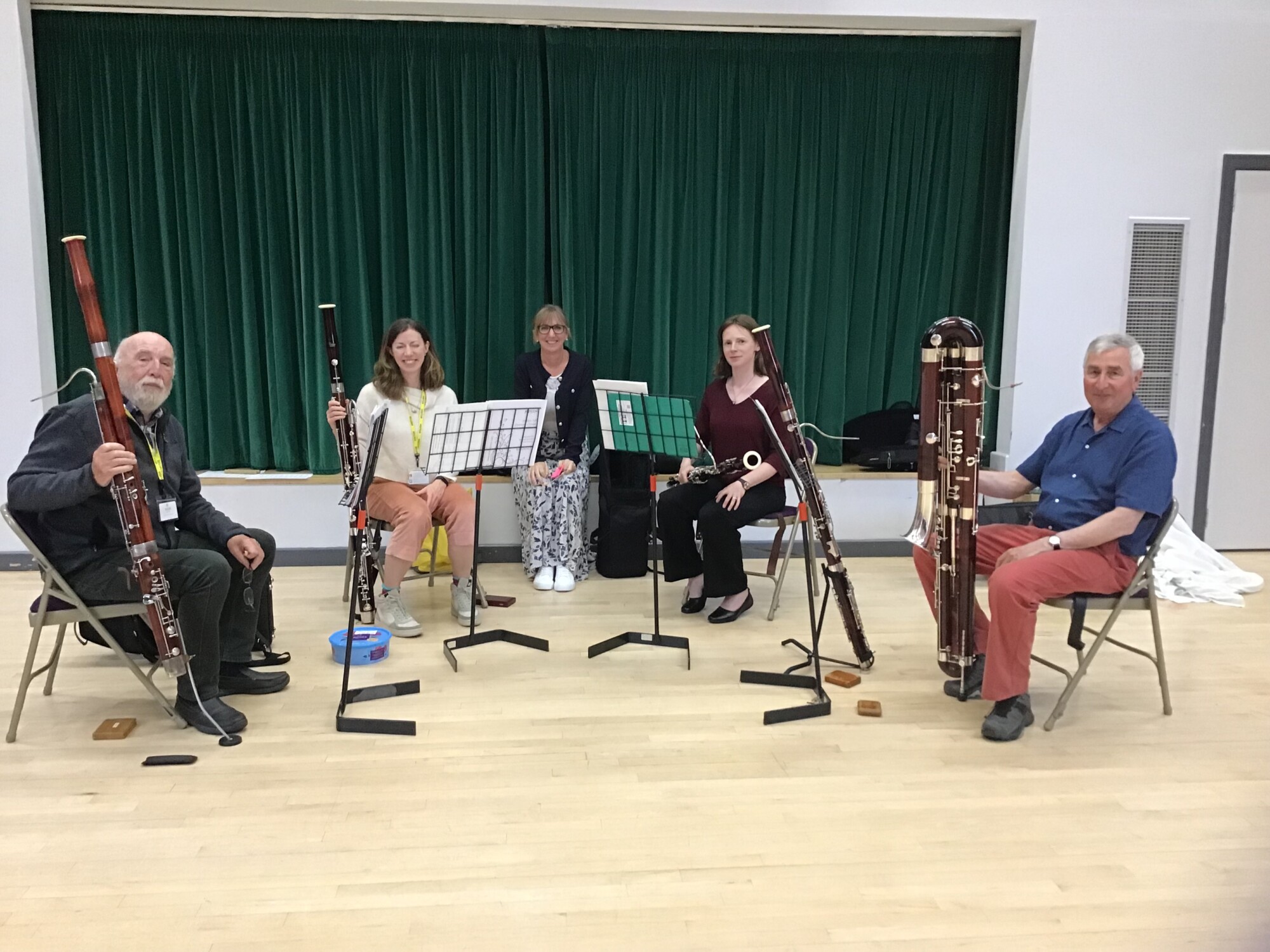
On a personal level, I hosted a music guidance day for teachers from other schools who wanted guidance on teaching music and running a choir.
Mrs Bagnall’s highlights and achievements
My biggest highlight from this school year has been String Group. We have a record number of students playing every week and making a terrific sound.
We play lots of fun repertoire in anything from one to three parts, and we have recently started developing the children’s improvisation skills too.
A standout achievement for me this year has been introducing the viola as an instrument option for children this year. I gave an assembly last year with the cello teacher to Year 1 and Reception to talk about string instruments. I brought my friend’s viola in to demonstrate to the children what a beautiful instrument it is. The next week I had my first sign-up and I have another student starting next year.
I feel really proud to be introducing the viola to the children at Pilgrims. I am passionate about keeping the next generation of orchestras going and viola players are always in short supply.
My other great achievement is putting one of my violin students in for her Grade 1 exam.
Attempting Grade 1 at this young age is unusual and takes a lot of dedication from the student (and her parents).
We have never had a Pilgrims student take Grade 1 violin before, so it’s been a lovely milestone for me as a teacher too.
I am proud of all my exam students for how hard they have worked this year and hope that they have enjoyed the process and found the challenges exciting!
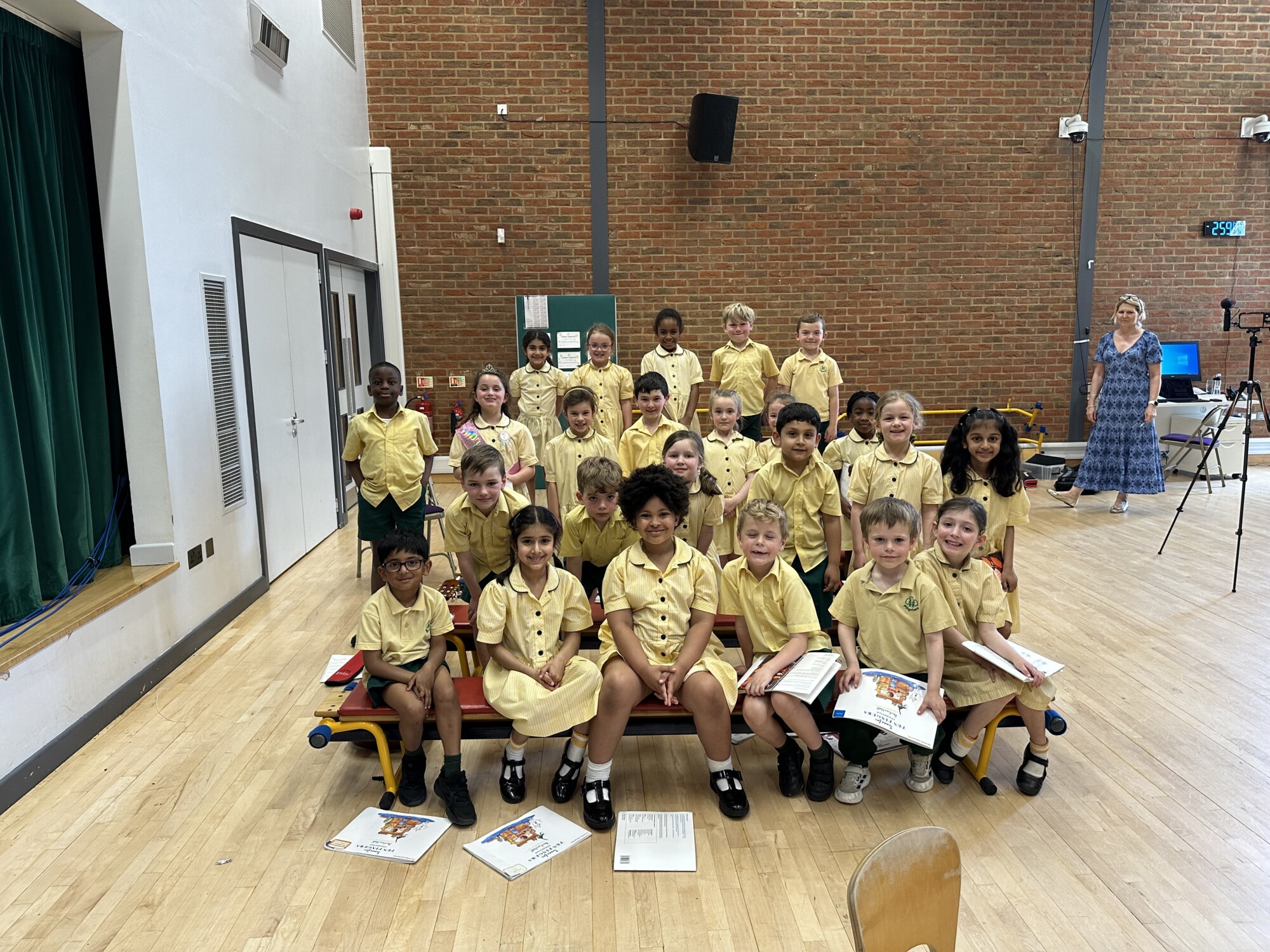
As we celebrate these achievements, we also look forward to the continued growth and success of our music department. Angela and Lottie are both excited to see what the next academic year will bring, confident that their students will continue to thrive and make beautiful music.
Summer has arrived, bringing with it a variety of sporting occasions, such as the Olympics and the European Championship.
At Pilgrims, we emphasise the importance of sports and regular exercise for our children, aiming to instil a lifelong love for physical activity.
Engaging in sports not only enhances physical health and fitness but also significantly benefits mental wellbeing.
Physical health and fitness
Exercise is crucial for maintaining a healthy body. Regular physical activity helps children build strong bones and muscles and improve their cardiovascular health.
Activities like running, jumping and playing sports enhance their motor skills, agility and overall physical development.
Mental health benefits
The benefits of exercise extend beyond physical health.
Engaging in sports and physical activities helps reduce anxiety and stress, contributing to better mental health. Physical activity releases endorphins, which are natural mood lifters.
We encourage the children to watch the determination and focus of Olympic athletes or the passion and resilience of footballers in the Euros to inspire similar qualities.
Exercise also helps children pay better attention in school and promotes good sleep, which is critical for brain development.
These factors combined help children get the most out of their school experience.
Encouraging participation and enjoyment
At Pilgrims, we understand that while some children naturally enjoy sports, others may need encouragement.
Our dedicated staff work hard to find activities that each child enjoys to foster a love for movement.
Events like the Olympics help to showcase to the children the vast variety of sporting activities.
We give the children the opportunity to learn different sports and discover which ones they are good at and most importantly, the ones they enjoy most.
Healthy competition
We want all of the children to enjoy sports and so we teach them healthy competition, but also that having fun is not all about winning, it’s about taking part.
Healthy competition is encouraged, promoting values like teamwork, perseverance and sportsmanship.
We regularly take part in inter-school competitions such as tennis and mini-cricket tournaments, competing with pupils from other schools.
The European Championship, with its intense competition, is a perfect example of how sports can test and build character.
The children can watch their favourite teams and players navigate the highs and lows of the tournament, learning valuable lessons about dealing with success and failure, setting goals and working hard to achieve them.
Sports Day
Sports Day is a highlight of our sporting calendar, where children and parents come together for a day of fun and friendly competition.
Parents are invited to attend to support their children as they take part in a series of races to win points for their House. These are fun races, and the children do not feel they are competing against each other, instead they simply want to run as fast as they can, whilst hearing their parents cheer them on.
The same goes for the older children in main school, although the parent races can get a little more competitive!
These events reinforce the idea that sports are about effort, enjoyment and community spirit.
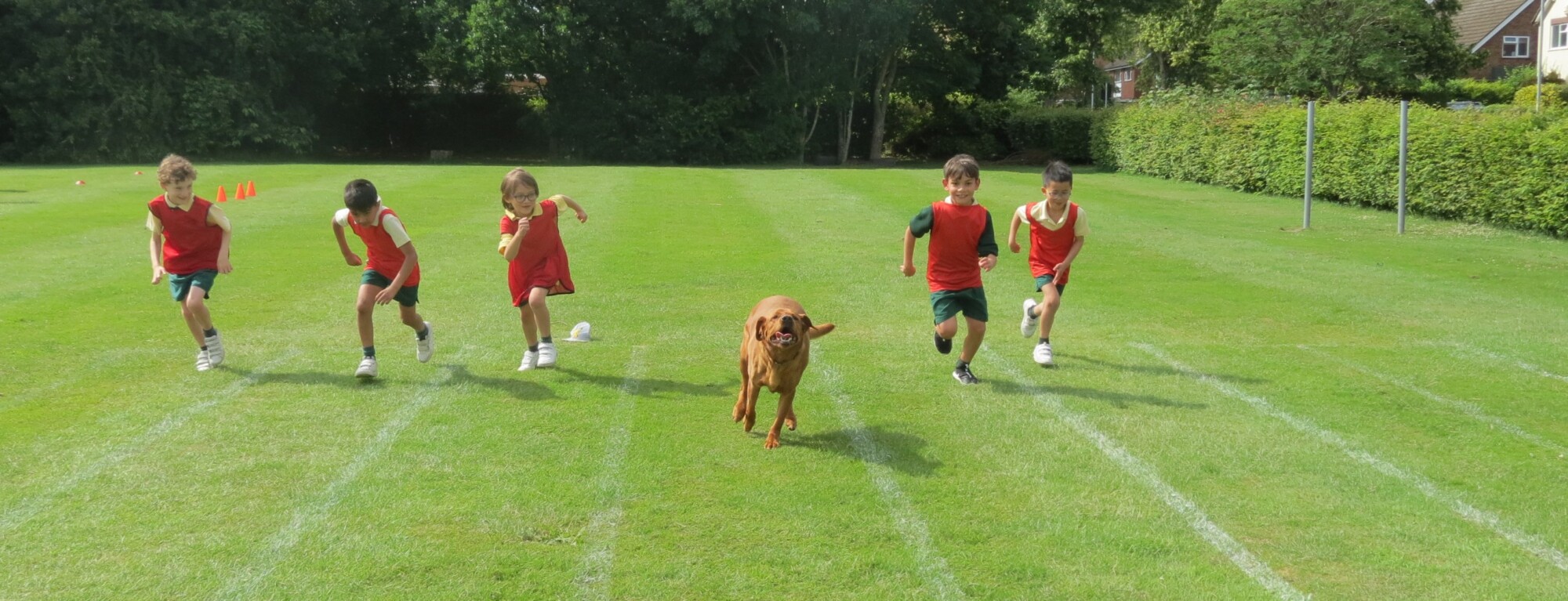
Sport is a very important part of school life for the children at Pilgrims.
We are committed to providing diverse and enjoyable sporting opportunities, fostering a love for physical activity that our students will carry with them long after they leave our school.

